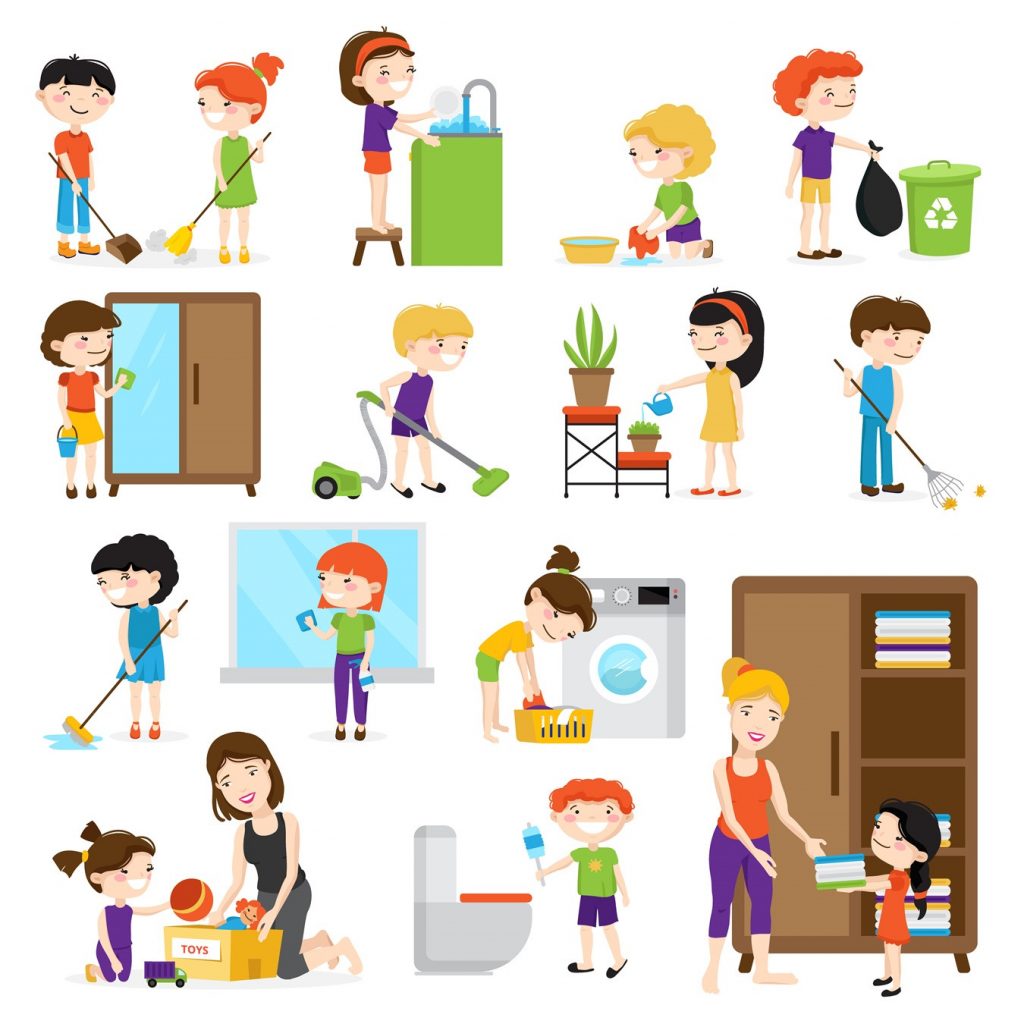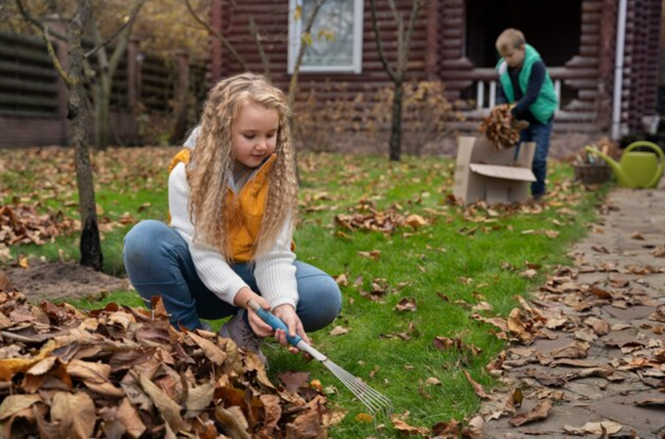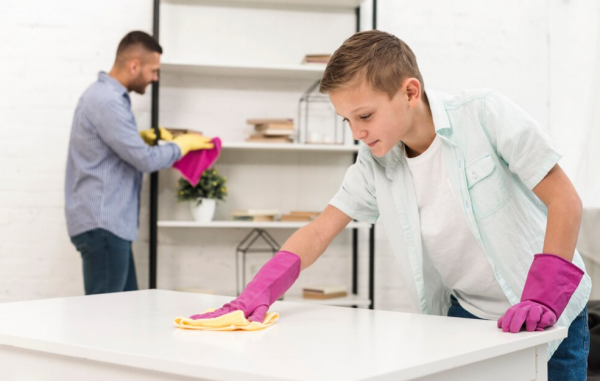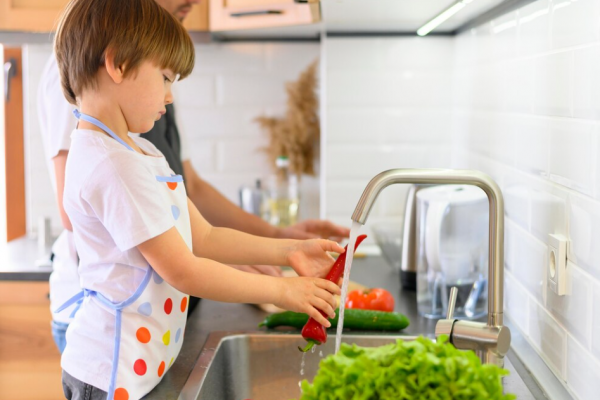As parents, we all want what’s best for our children. We want them to grow into responsible, capable individuals who can thrive in the world. One way to help them develop these essential qualities is by giving kids chores to do around the house.
You might be thinking, “But chores are just tedious tasks that need to get done. How can they possibly be important?” Well, let me tell you, chores are so much more than just chores. They are valuable opportunities for children to learn and grow in various ways.

Teaching Responsibility
Assigning chores to kids teaches them about responsibility from an early age. When they have tasks to complete, they learn that their actions have consequences and that they play a role in contributing to the household’s well-being.
Building Life Skills
Chores are like mini life lessons disguised as everyday tasks. Whether it’s doing the laundry, washing dishes, or tidying up their room, children learn practical skills that will serve them well throughout their lives. These skills include cooking, cleaning, organization, and basic home maintenance.
Developing Work Ethic
Completing chores on a regular basis instills a strong work ethic in kids. They learn the value of hard work, perseverance, and the satisfaction of a job well done. These qualities are essential for success not only at home but also in school, careers, and personal relationships.
Fostering Independence
As children take on more responsibilities around the house, they become more independent and self-sufficient. They gain confidence in their abilities and learn to rely on themselves to get things done. This independence is crucial for their development and prepares them for adulthood.
Promoting Teamwork and Cooperation
Chores often involve working together as a family to accomplish tasks. Children learn the importance of teamwork, cooperation, and communication as they collaborate with siblings or parents to complete chores. These skills are invaluable in all aspects of life, from friendships to work environments.

Learning Time Management
Balancing schoolwork, extracurricular activities, and chores teaches children valuable time management skills. They learn to prioritize tasks, manage their time effectively, and develop a sense of responsibility for their schedules.
Instilling Respect and Appreciation
By participating in household chores, children gain a deeper appreciation for the effort involved in maintaining a home. They learn to respect the work done by parents and caregivers and develop empathy for others’ contributions.
In conclusion, chores are not just about keeping the house clean; they’re about preparing our children for life. By involving them in age-appropriate chores and emphasizing the importance of contributing to the family, we help them develop crucial life skills, responsibility, and independence that will serve them well into adulthood. So, next time you ask your child to help out around the house, remember that you’re not just assigning a chore – you’re helping them grow into the capable, responsible adults they are meant to be.

Chores for 5 to 7-Year-Old Kids
Here is a list of age-appropriate chores that 5 to 7-year-olds can typically handle:
- Making Their Bed: While it might not be perfect, children in this age group can start learning to straighten out their bed covers and pillows in the morning.
- Putting Away Toys: Encourage them to tidy up their toys and games after playing. You can make it fun by turning it into a game or providing a reward for completing the task.
- Setting the Table: Teach them to set the table for meals. They can place napkins, utensils, and non-breakable dishes on the table with a little guidance.
- Clearing the Table: After meals, children can help clear the table by bringing their dishes to the kitchen sink or dishwasher. They can also assist with wiping down the table.
- Watering Plants: If you have houseplants or a small garden, children can help water them under supervision. Provide them with a small watering can and teach them how much water each plant needs.
- Feeding Pets: If you have pets, children can help with feeding them. Show them how much food to give and how to refill water bowls.
- Dusting: Give them a duster or a cloth and let them dust low furniture or surfaces within their reach. Make sure to supervise them, especially if using any cleaning products.
- Simple Meal Prep: Depending on their skills and your comfort level, children can assist with simple meal prep tasks like washing vegetables, stirring ingredients, or setting out ingredients for recipes.
- Taking Out Trash: Children can help gather trash from around the house and take it to the main trash bin. Ensure that they are disposing of items safely and that the trash isn’t too heavy for them to handle.
Remember to keep tasks simple, provide clear instructions, and offer praise and encouragement for their efforts. It’s important to make chores a positive experience that helps them learn responsibility and feel like valued members of the household.

Chores for 8 to 10-Year-Old Kids
Here is a list of age-appropriate chores that 8 to 10-year-olds can typically handle:
- Cleaning Their Room: Children can take on more responsibility for keeping their room tidy. This includes putting away toys, organizing books, and straightening up surfaces.
- Vacuuming/Sweeping Floors: Show them how to operate a vacuum cleaner or broom safely, and let them vacuum or sweep areas of the house such as their bedroom or the living room.
- Folding Laundry: Children can learn to fold and put away their own clothes, as well as help fold towels and linens. Start with simple items like t-shirts and gradually introduce more complex folding techniques.
- Taking Care of Pets: If you have pets, children can take on more responsibility for their care, such as feeding, brushing, or walking them under supervision.
- Watering Plants: They can continue to help with watering indoor and outdoor plants, learning how much water each plant needs and how often to water them.
- Assisting with Meal Prep: Children can assist with more complex meal prep tasks under supervision, such as chopping vegetables, mixing ingredients, or following simple recipes.
- Cleaning Bathrooms: Teach them how to clean sinks, countertops, and toilets safely using appropriate cleaning products. They can also help wipe down mirrors and replenish supplies like toilet paper and hand soap.
- Sorting and Recycling: Show them how to sort recyclable materials from regular trash and encourage them to help with recycling efforts in the household.
- Yard Work: Depending on your yard and their abilities, children can assist with outdoor chores like raking leaves, pulling weeds, or watering plants in the garden.

As with younger children, it’s important to provide clear instructions, demonstrate tasks as needed, and offer praise and encouragement for their efforts. These chores not only teach responsibility but also help children develop valuable life skills and a sense of accomplishment.
Do your kids help with chores around the house? If they do not, they have to start as soon as possible. It’s never too late.
You may also like: 10 Ways to Stay More Focused at Work



